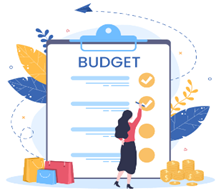
Set a Budget
- Define spending limits for different categories such as groceries, transportation, entertainment, and savings.
Choose a Tracking Method
- Use an expense tracking app, a spreadsheet, or a notebook to record all your expenses.


Keep Receipts
- Save and organize receipts, whether physical or digital, to ensure you capture all expenses accurately.
Review Bank Statements
- Regularly check your bank and credit card statements to verify all transactions and ensure nothing is missed.


Conduct Regular Reviews
- Set a weekly or monthly schedule to review your spending and compare it against your budget.
Set Financial Goals
- Establish clear financial goals, such as saving for a trip or paying off debt, to stay motivated and focused.



1. Why should I track my expenses?
- Tracking expenses helps you understand where your money is going, ensures you stay within your budget, and assists in achieving financial goals like saving or paying off debt.

2. What is the simplest way to track my expenses?
- Using an app like Mint or YNAB is the simplest option for most people, as they automatically categorize your transactions. Alternatively, a spreadsheet or notebook works for a more hands-on approach.

3. How often should I review my expenses?
- Ideally, review your expenses daily or weekly. This ensures you stay on top of your budget and make adjustments in real time.

4. Do small purchases really need to be tracked?
- Yes, small purchases can add up over time and have a big impact on your budget. Tracking them helps you avoid unnecessary spending.

5. What should I do if I overspend in a certain category?
- If you overspend, review the category, adjust your budget if needed, and try to reduce spending in other areas for the next month. Learning from overspending helps you stay on track in the future.
Conclusion
Tracking your expenses may seem tedious at first, but it’s a powerful habit that leads to greater financial awareness and control. By setting a clear budget, consistently monitoring your spending, and aligning your habits with your financial goals, you’ll be better equipped to make smart money decisions. Start small, stay consistent, and watch how your budgeting efforts can boost your financial well-being over time.

